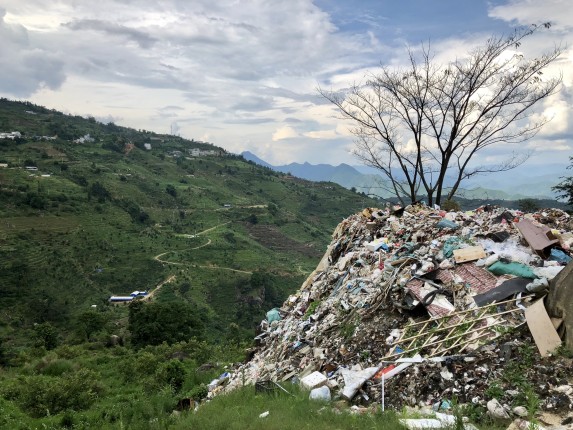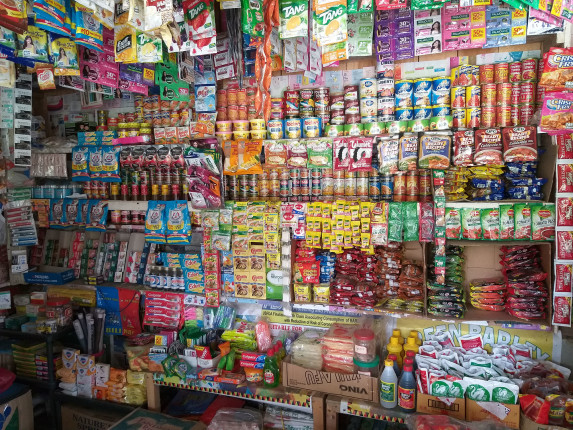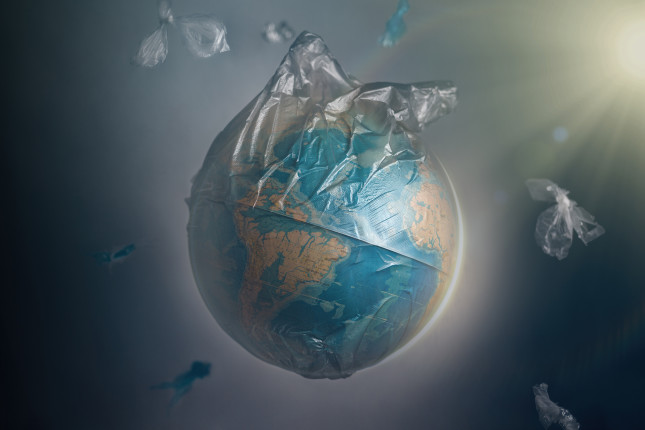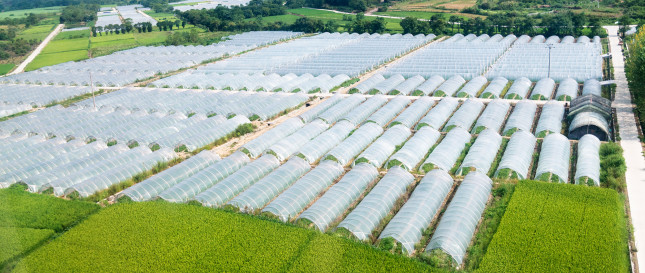-
Who Pays the Bill for Plastic Waste?
›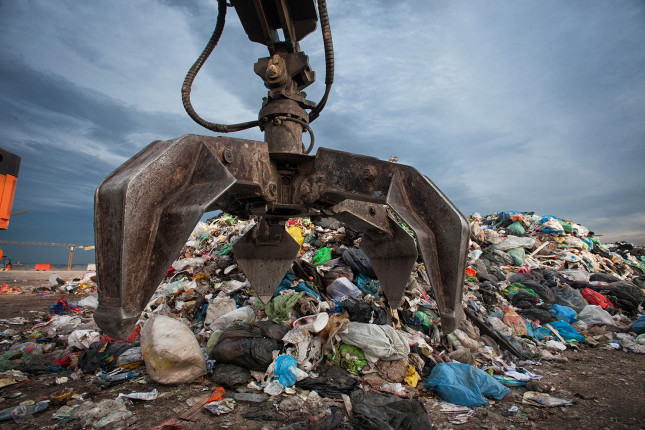
China’s 2018 National Sword Policy ended the country’s role as the recycling bin for the world’s post-consumer plastic scrap and threw global recycling markets into disarray. Reeling on the other side of the globe, American cities were forced to store, incinerate, or throw collected recyclables into landfills. Faced with a rapidly diminishing landfill capacity, China is consolidating and formalizing its domestic recycling industry, an expensive and daunting task.
-
A Dangerous Taste for Plastic in the Ocean Depths
› If you watched Finding Nemo (who hasn’t?), you may remember Nemo’s home in the beautiful pink sea anemone with its tentacles waving around. These tentacles are able to sting and eat fish, crabs, and sometimes even birds. Lucky for Nemo, clownfish have a mucus coat that protects them from the sea anemone’s poisonous stings. And lucky for the sea anemone, clownfish protect them from being consumed by other fish and provide them nutrients through their food and fecal droppings. Nemo and his fellow clownfish, however, can’t shield these sedentary sea animals from nearly invisible plastic microfibers or plastic preproduction pellets, called nurdles. At Duke University I have been studying one specific species of sea anemone, Aiptasia pallida, which seems to find plastic particularly tasty. My work is part of a larger wave of scientific research around the world looking into how and why sea animals are eating microplastics and how it may impact their health.
If you watched Finding Nemo (who hasn’t?), you may remember Nemo’s home in the beautiful pink sea anemone with its tentacles waving around. These tentacles are able to sting and eat fish, crabs, and sometimes even birds. Lucky for Nemo, clownfish have a mucus coat that protects them from the sea anemone’s poisonous stings. And lucky for the sea anemone, clownfish protect them from being consumed by other fish and provide them nutrients through their food and fecal droppings. Nemo and his fellow clownfish, however, can’t shield these sedentary sea animals from nearly invisible plastic microfibers or plastic preproduction pellets, called nurdles. At Duke University I have been studying one specific species of sea anemone, Aiptasia pallida, which seems to find plastic particularly tasty. My work is part of a larger wave of scientific research around the world looking into how and why sea animals are eating microplastics and how it may impact their health. -
Out of Sorts: Rural Waste Problems in China and the United States
›
In Bangdong Village, Yunnan, Matthew Chitwood wanted to do his part to keep the stunning mountainous area clean during his two-year residency as a China fellow at the Institute of Current World Affairs. One day he took his empty beer bottles to a local convenience shop for recycling, but the owners would not accept them. He was told to dump them over the embankment. Looking down the slope at the accumulated piles of broken furniture, soggy socks, food waste, and crushed soda cans entangled with plastic bags, Matt refused. Later, Matt’s friends flung his bottles into the gully. He related his frustrating recycling attempt to Mao Da, the founder of China Zero Waste Alliance, who told Matt that “rural trash management itself is a misnomer… It’s really just trash relocation.”
-
Turning off the Tap: Plastic Sachets and Producer Responsibility in Southeast Asia
›
In the crowded capital city of Manila, the Philippines, one quarter of the population of 15 million people has less than one dollar to spend per day. Residents depend upon the tiny and ubiquitous convenience stores, known as sari-sari stores, for daily essentials like food and hygiene products, much of which are sold in convenient single-use sachets (small plastic pouches) for just a few cents each. These sari-sari stores are the major source of the 150 million sachets used daily in the Philippines.
-
How Plastic Pollution is Being Woven into Fast Fashion Culture
›The words “plastic pollution” evoke images of discarded plastic bottles and bags, derelict fishing gear, and crushed cigarette butts set on a beautiful beach or floating underwater. In this imagery, the ebb and flow of plastic pollution is visible to the naked eye. But the plastic we can see is only part of the problem. What we do not see so easily are the microscopic, hair-like plastic fibers that are coursing through the water and air, accumulating on beaches, in intertidal zones, and even in Arctic sea ice. These are synthetic microfibers: thin pieces of plastic, a sub-category of microplastics, that resemble a strand of hair. -
Seeking Global Action on Plastic
›
It’s your turn, you place a paper with a word on your forehead and people start yelling clues for you to guess: “Ketchup bottle! Your glasses! Glitter! Legos! Tea bags! But then the clues take a turn: “Gets stuck in trees! Floats in the ocean! Lies in gutters!” Realization hits and you yell “Plastic!” Plastic, a global riddle that inundates our daily lives yet also is the source of a growing waste and pollution crisis. Single-use plastic packaging and containers generate 300 million tons of plastic waste each year and between 4.8 to 12.7 million tons of it leaks into the ocean annually, from a variety of land-based sources like stormwater runoff, construction sites, and poor waste management systems. Moreover, nearly invisible pollution from plastic-derived chemicals and microplastics are also on the rise in the oceans. These plastics end up in the guts of birds, oysters, and fish, and entangle sealife, posing a threat to the health of ocean ecosystems, food security, and the planet.
-
The World Is Your Oyster and Your Plastic Pollution Is Getting Into It
›
Picture this: It’s a warm, spring day in May 2021. You are at a local seafood restaurant overlooking the Chesapeake Bay and your order of raw oysters arrives delicately placed on a layer of ice. Your waiter reviews the type of oysters you ordered. He says, “Running clockwise, you have Pemaquid, Blue Point, and PEI.” Before the waiter steps away, he asks, “Would you like extra microplastics added to your oysters?” Dumbfounded, you reply, “Extra?”
This Twilight Zone-like scenario is not totally fictional. Oysters are a keystone species in the environment, meaning they are the backbone of ecosystems. They are heroes in a small shell. In addition to where they sit on the food chain, oysters can filter up to 50 gallons of water per day, cleaning the surrounding water of chemicals and pollutants. However, this means they inevitably suck up more than they bargained for. Scientists have discovered that oysters contain microplastics, plastic pieces that measure less than 5 mm in size in one dimension (similar to the size of a sesame seed). Oysters suck in microplastics and, sometimes, they never pass them out.
-
China Increasing Agricultural Production on a Sea of Plastic
›
I saw plastic greenhouses as far as the eye can see from the train as I traveled across Shandong Province to visit the Shandong Academy of Agricultural Sciences. Ninety percent of the world’s plastic greenhouses are in China, covering 3.3 million hectares, about the area of Maryland, with the majority in Shandong.
Showing posts from category waste.


 If you watched Finding Nemo (who hasn’t?), you may remember Nemo’s home in the beautiful pink sea anemone with its tentacles waving around. These tentacles are able to sting and eat fish, crabs, and
If you watched Finding Nemo (who hasn’t?), you may remember Nemo’s home in the beautiful pink sea anemone with its tentacles waving around. These tentacles are able to sting and eat fish, crabs, and 